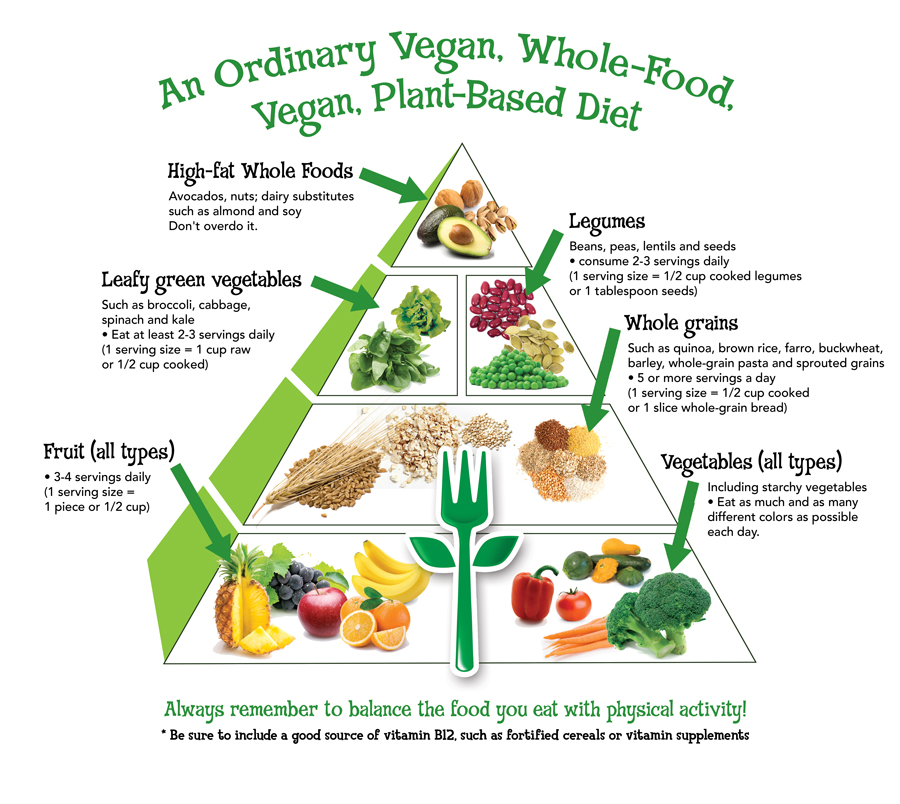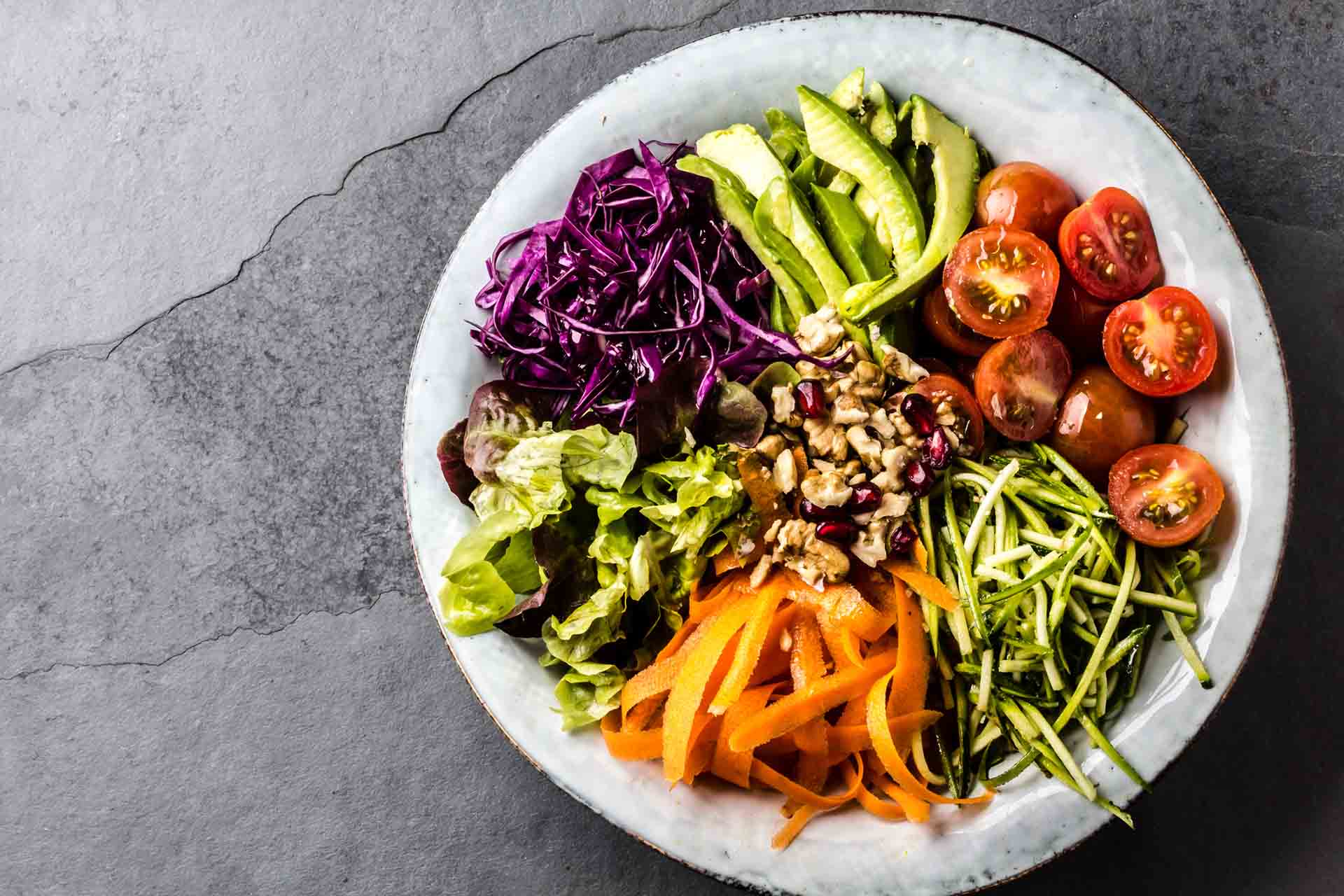The Ultimate Guide to Cooking with Gluten Free BBQ Sauce on a Plant-Based Diet
Finding the Benefits of Plant Based Meals in Promoting Healthy Food Choices
Plant-based meals supply various benefits that can enhance healthy and balanced consuming practices. They focus on nutrient-dense components, adding to total wellness. These meals are abundant in important nutrients, which can bring about boosted energy degrees and food digestion. Furthermore, they play a significant duty in weight monitoring and chronic condition avoidance. The implications prolong past individual health, touching on ecological sustainability. Discovering these facets exposes a compelling instance for integrating much more plant-based foods into everyday diet plans.
Recognizing Plant-Based Diet Regimens
What defines a plant-based diet? A plant-based diet regimen mainly consists of foods originated from plants, including veggies, fruits, seeds, grains, and nuts. While it highlights plant foods, it is not always vegan or vegan; some individuals may consist of percentages of pet products. The core concept focuses on focusing on plant foods for their dietary benefits and environmental sustainability. This diet regimen encourages the intake of entire, minimally processed foods, usually causing an increased consumption of necessary nutrients. In addition, plant-based eating promotes cooking creativity, as individuals discover varied dishes and tastes. Inevitably, a plant-based diet plan can be adjusted to match various lifestyles and preferences, making it a flexible choice for those seeking to include even more plant foods right into their dishes.
Wellness Perks of Plant-Based Foods
A plant-based diet offers a wide range of health advantages that can enhance total wellness. Research study shows that individuals following this diet plan usually experience reduced threats of chronic conditions, such as heart disease, diabetes mellitus, and specific cancers cells. Rich in anti-oxidants, minerals, and vitamins, plant-based meals sustain immune feature and advertise cellular health. Moreover, these diet regimens are typically high in nutritional fiber, which aids food digestion and assists keep healthy cholesterol levels. The incorporation of whole foods, such as fruits, vegetables, vegetables, and entire grains, adds to improved power degrees and mental clarity. In addition, the anti-inflammatory properties discovered in many plant-based foods can assist minimize inflammation in the body, promoting better cardiovascular and joint health and wellness.
Effect On Weight Monitoring
The influence of plant-based meals on weight administration can be substantial as a result of their nutrient density and lower calorie consumption. These dishes frequently provide essential nutrients while lessening vacant calories, promoting healthier eating habits. Because of this, individuals may locate it less complicated to lose or preserve weight with a plant-based diet.
Nutrient Density Conveniences
While numerous diets concentrate on calorie restriction, the idea of nutrient thickness uses a much more holistic approach to weight management. Nutrient-dense foods are rich in vitamins, minerals, and anti-oxidants while being lower in calories. This enables people to consume larger sections without surpassing their caloric needs. Plant-based dishes, which typically include fruits, vegetables, whole grains, and legumes, exemplify nutrient density. These foods not only support weight administration but additionally promote satiation, lowering the chance of over-eating. Furthermore, a high intake of nutrient-dense foods can lead to enhanced metabolic wellness, as they supply the essential nutrients for peak bodily feature. Inevitably, focusing on nutrient thickness can promote healthier eating patterns and add to lasting weight monitoring approaches.
Minimized Caloric Consumption
Decreased calorie consumption plays a substantial function in reliable weight management, as it straight affects a person's energy equilibrium. Plant Based Beef. Plant-based dishes are commonly reduced in calories while being abundant in necessary nutrients, making them an optimal option for those looking for to decrease caloric consumption without giving up nourishment. By including much more fruits, vegetables, whole grains, and vegetables, individuals can appreciate bigger portion dimensions that advertise satiation. This method not only help in weight management yet additionally promotes sustainable consuming routines. Additionally, plant-based diet regimens commonly lower the consumption of processed foods high in sugarcoated and undesirable fats, which can contribute to excess calorie intake. Inevitably, an emphasis on plant-based meals can sustain healthier weight monitoring techniques and long-term health
Reducing the Threat of Chronic Conditions
Integrating plant-based meals into one's diet can substantially lower the danger of persistent diseases. Numerous researches demonstrate that diet plans abundant in fruits, veggies, whole grains, and vegetables are linked with lowered incidences of heart disease, diabetes, and particular cancers. The high fiber content of plant-based foods adds to much better digestive system wellness and boosted cholesterol levels, while phytochemicals and anti-oxidants found in these foods may assist deal with swelling and oxidative stress. Additionally, plant-based diet plans are generally lower in hydrogenated fats and cholesterol, more advertising cardio health and wellness. By focusing on plant-based alternatives, people can improve their general well-being and produce a healthier lifestyle that reduces the possibility of establishing persistent health issues, thereby fostering a more resistant body.
Ecological Sustainability of Plant-Based Consuming
Just how can plant-based consuming add to environmental sustainability? Shifting to a plant-based diet substantially reduces the ecological influence connected with food manufacturing. Livestock farming is a leading root cause of deforestation, greenhouse gas emissions, and water depletion. By eating extra plant-based foods, people can reduce their carbon footprint and save all-natural sources. Furthermore, plant-based diets generally require much less power and land contrasted to meat production, making them a more lasting choice. The cultivation of crops for direct human intake is normally much more reliable, as it gets rid of the demand for feed conversion. By embracing plant-based eating behaviors, culture can promote biodiversity, minimize climate adjustment, and promote a healthier earth for future generations. Ultimately, this adjustment sustains both human health and ecological sustainability.
Easy Ways to Integrate Plant-Based Foods
Welcoming a plant-based diet plan not only profits the setting however also uses various opportunities for individuals to boost their daily dishes. One effective method to start is by slowly replacing pet products with plant options, such as making use of almond milk instead of dairy. Incorporating a lot more veggies into different recipes can also be transformative; adding spinach to smoothie mixes or making use of cauliflower rice can elevate meals. Preparation once a week menus that highlight vegetables, grains, and seasonal fruit and vegetables promotes range and lowers tension during dish preparation. Additionally, discovering regional farmers' markets can inspire imagination and offer fresh active ingredients. Simple modifications, like deciding for entire grain bread or trying plant-based treats, can make a significant influence on much healthier eating behaviors while fostering a higher recognition for plant foods.
Delicious Plant-Based Dish Concepts to Try

Exploring tasty plant-based meal concepts can boost one's culinary experience while promoting wellness - Plant Based Chicken. Quick and easy dishes including nutrient-packed active ingredients supply a range of options for busy timetables. Furthermore, flavorful worldwide dishes can present interesting tastes and appearances to plant-based eating
Quick and Easy Recipes
Numerous people seeking healthier food options are turning to simple and quick plant-based dishes that cater to a selection of way of livings and preferences. These recipes frequently focus on very little preparation time, making them obtainable for hectic timetables. Basic options such as quinoa salads, veggie stir-fries, and chickpea wraps can be prepared in under thirty minutes, permitting nutritious meals without extensive cooking. Active ingredients like fresh veggies, vegetables, and entire grains work as the foundation for these recipes, providing flexibility and flavor. Furthermore, many fast recipes can be tailored to match personal preferences, making it very easy to integrate seasonal fruit and vegetables or favorite seasonings. This method not just promotes healthier eating behaviors but also urges creativity in the cooking area.
Nutrient-Packed Components
Nutrient-packed components offer as the foundation for tasty plant-based dishes that not just please the palate but also support general wellness. Entire grains, such as quinoa and wild rice, offer necessary fiber and protein, while legumes like lentils and chickpeas use abundant resources of iron and folate. Incorporating lively veggies, such as bell, spinach, and kale peppers, boosts dishes with vitamins A, C, and K. Seeds and nuts add healthy fats, antioxidants, and additional protein, making them optimal for treats or toppings. Fruits, whether fresh or dried, add natural sweetness and important nutrients. By creatively integrating these components, individuals can explore a range of satisfying and nutrient-dense dishes that advertise health and keep energy degrees throughout the day.
Flavorful International Cuisines
What makes global cuisine so attracting is its ability to display diverse flavors while welcoming plant-based active ingredients. From the vivid seasonings of Indian chickpea curry to the fresh natural herbs of a Mediterranean tabbouleh, plant-based recipes use a worldwide tapestry of tastes. Thai green curry, abundant with coconut milk and diverse veggies, stands out for its fragrant blend. The great smoky notes of a Mexican black bean taco, topped with avocado and salsa, provide an explanation enjoyable experience. Japanese ramen can be changed with miso-based broth and a range of vegetables for a hearty dish. These examples illustrate just how worldwide dishes can influence delicious, health-conscious consuming, highlighting the flexibility of plant-based active ingredients in cooking practices worldwide.
Often Asked Questions
What Prevail False Impressions Concerning Plant-Based Diet Plans?
Common mistaken beliefs concerning plant-based diet plans consist of beliefs that they lack sufficient protein, are overly limiting, or are costly - Plant Based Beef. Several also wrongly assume that plant-based consuming is not ideal for any age groups or way of lives

How to Transition to a Plant-Based Diet Slowly?
To move to a plant-based diet regimen progressively, one need to begin by integrating more plant foods into dishes, replacing pet items slowly, trying out new dishes, and concentrating on entire foods to ensure well balanced nourishment.
Are Plant-Based Dishes Pricey to Prepare?
The inquiry of whether plant-based meals are costly usually occurs. While some components can be expensive, lots of economical alternatives exist. With cautious planning and seasonal selections, preparing healthy plant-based dishes can be affordable.
Can Kid Prosper on a Plant-Based Diet?
The inquiry of kids's thriving on a plant-based diet regimen has amassed interest. Research shows that with proper preparation, children can grow and meet dietary needs, profiting from varied nutrients found in fruits, vegetables, and entire grains.

What Are the very best Resources of Protein in Plant-Based Meals?
The very best sources of protein in plant-based dishes consist of vegetables, beans, lentils, quinoa, tofu, tempeh, nuts, and seeds. These choices supply necessary amino acids needed for development, maintenance, and general wellness without pet items. Rich in minerals, vitamins, and antioxidants, plant-based meals sustain immune feature and promote cellular health and wellness. Integrating plant-based meals into one's diet regimen can substantially reduce the danger of persistent illness. Welcoming a plant-based diet not just profits the setting however likewise uses various possibilities for people to enhance their day-to-day meals. Checking out my site tasty plant-based dish concepts go can elevate one's cooking experience while promoting health. Nutrient-packed components serve as the structure for tasty plant-based meals that not just satisfy the taste but likewise sustain general health.